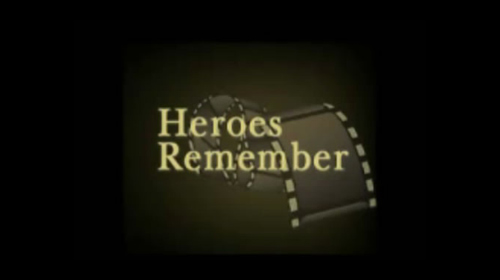Excess supply of rice
First World War Audio Archive
Excess supply of rice
Transcript
Young Soldier.
gonna do? We thought that every ship in the convoy had been sunk and it was quite a problem. Now up comes a sodbuster corporal from Saskatchewan, studying the situation. We had an excess supply of rice, Chinese rice and they’re ordinary 60 pound bags or whatever. And about a half mile distant was a damaged wine refinery containing half a dozen vats, two or three of which were usable. This sodbuster walks out there to survey the situation. One foot on the ground, one knee on a box, head resting in his hand, looking around to see what the hell he could see. And to cut it short, he finally spotted two or three truckloads of sandbags. Hmm. How the hell could we utilize that? Then he thought of the nice rice puddings his mom made at home. So he simply walked over to those sandbags and he yanked one out and he measured with his hand. I’ve forgotten whether he cut it into three or what. If he could cut those sacks, put in so much rice, so much sugar, so much salt and whatever, and tie the ends and throw them in a boiling vat, they would come out like a bologna sausage about a yard long. That was how the idea formed. Now, he send two Joe’s down to clean out one of those vats,Veteran at home in his older years.
get a fire going. Two other Joe’s packed two or three bundles of sandbags, took them to the shoemaker, with instructions to sew up. Let us assume now the bag is a foot wide, I have forgotten, and he made three bags out of it. And then he continued with his, with his rice. I’ve forgotten how many cups, he told me, but I’ve forgotten. So many cups of rice, so much sugar, so much salt, and whatever. They were tied at the end and the vat was boiling and in they went. And out they came. I know this because I ate many of them.Description
Mr. Butterworth describes how innovative thinking eased the food shortages, which were sometimes experienced by the soldiers.
James Howcroft Butterworth
James Butterworth was born in England and emigrated to Canada in 1907 with his Parents and syblings. His family moved to Alberta where they became farmers. Mr. Butterworth remembers an act of great sacrifice and kindness by a German farm family in Alberta which was to affect his attitude for life. He enlisted on October 27, 1915, with the 65th Battalion, Canadian Expeditionary Force, and joined the 46th Battalion. He served in France and was wounded in the foot and knee (accidental). He left the service on February 26, 1919, at rank of private. On June 21, 1926, Mr. Butterworth married Gertrude E. Wilson and they had three children. He was a farmer and worked as a grain buyer for United Grain Growers and later for the Veterans’ Land Act, both in Alberta. He retired in 1961 and settled in Calgary where he died on January 4, 1976.
Meta Data
- Medium:
- Video
- Owner:
- Veterans Affairs Canada
- Duration:
- 2:38
- Person Interviewed:
- James Howcroft Butterworth
- War, Conflict or Mission:
- First World War
- Location/Theatre:
- Europe
- Battle/Campaign:
- Ypres
- Branch:
- Army
- Units/Ship:
- 65th Battalion
- Rank:
- Private
- Occupation:
- Infantryman
Related Videos
- Date modified:



